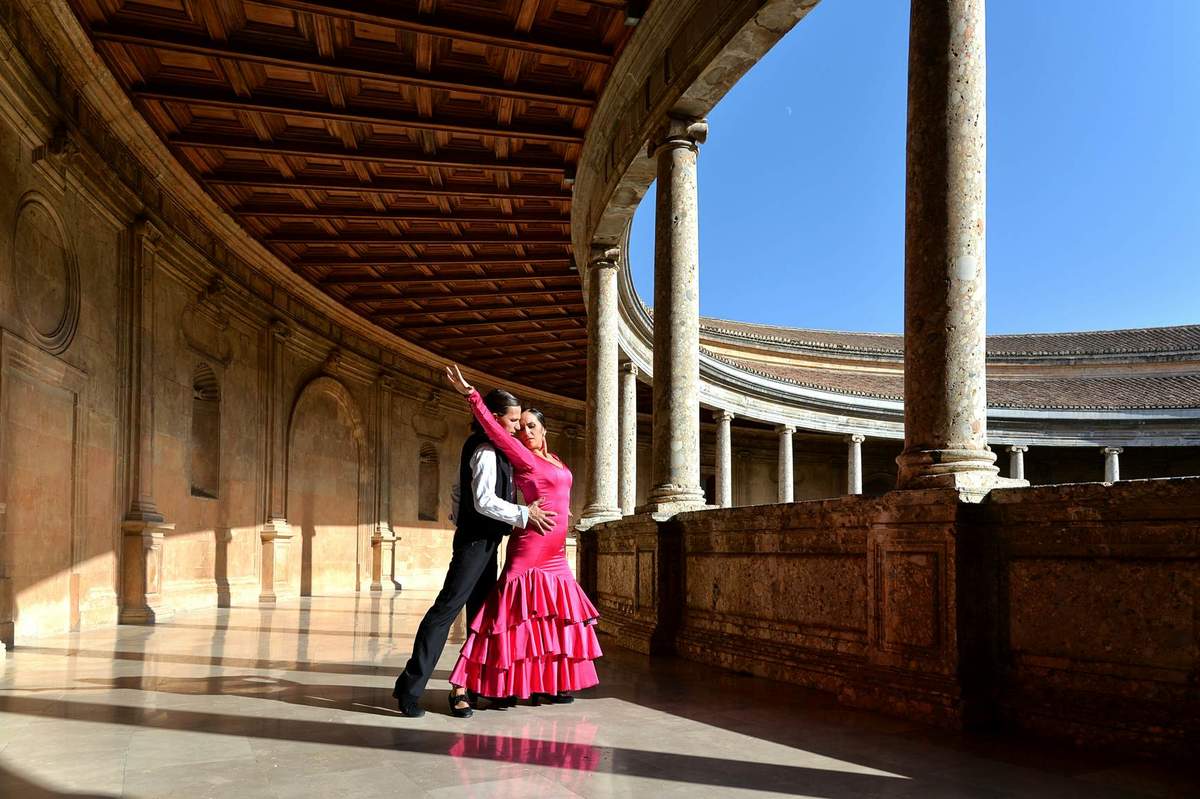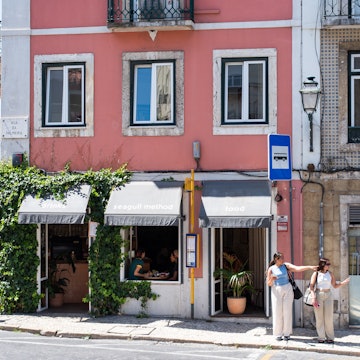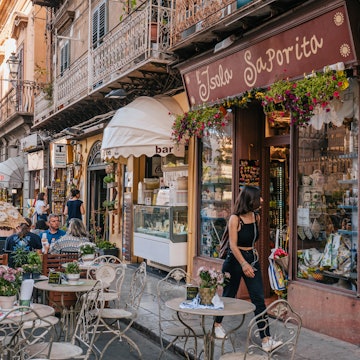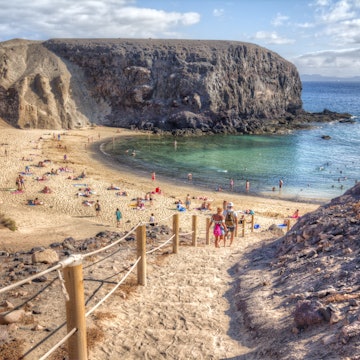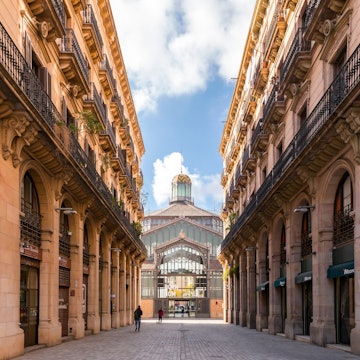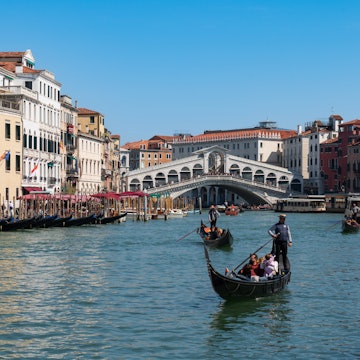
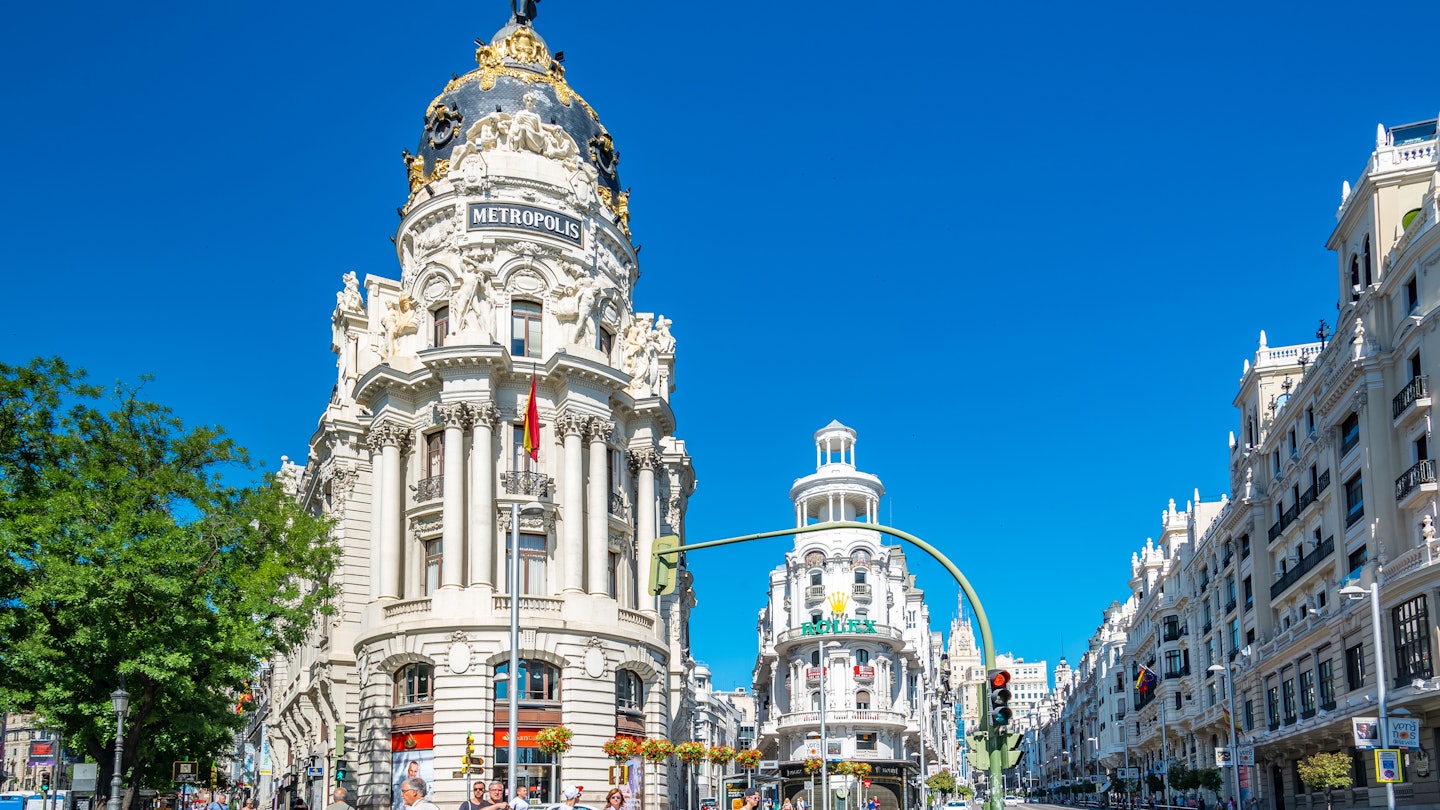
Madrid. NaughtyNut/Shutterstock
Offering world-class galleries and museums as well as spectacular nightlife, Madrid is an increasingly popular destination. In recent years, demand has driven up the price of accommodation, with luxury hotels opening one after another. But that doesn’t mean it’s unaffordable. Cheap eats abound in markets and local bars, which typically offer a free tapa of patatas fritas (potato chips) with your drink. In other good news: not all of the city’s attractions come with a hefty price tag, meaning there are plenty of ways to whittle down your costs once you’ve splurged on a hotel.
1. Learn about the origins of Madrid at the Museo de San Isidro
The Museo de San Isidro is a free museum in the heart of historic La Latina that tells the history of Madrid from prehistory through to medieval times. Working your way through exhibits covering Roman, Islamic and Christian eras will take about half a day, but luckily, you can take breaks in the museum’s pretty garden and medieval courtyard.
Planning tip: Pick up a cheap lunch nearby at Mercado de la Cebada, an indoor market filled with small eateries, then finish the story of the city by heading across town to the Museo de Historia de Madrid, another free museum that begins with the permanent arrival of the court in 1561, an event that made Madrid Spain’s capital.
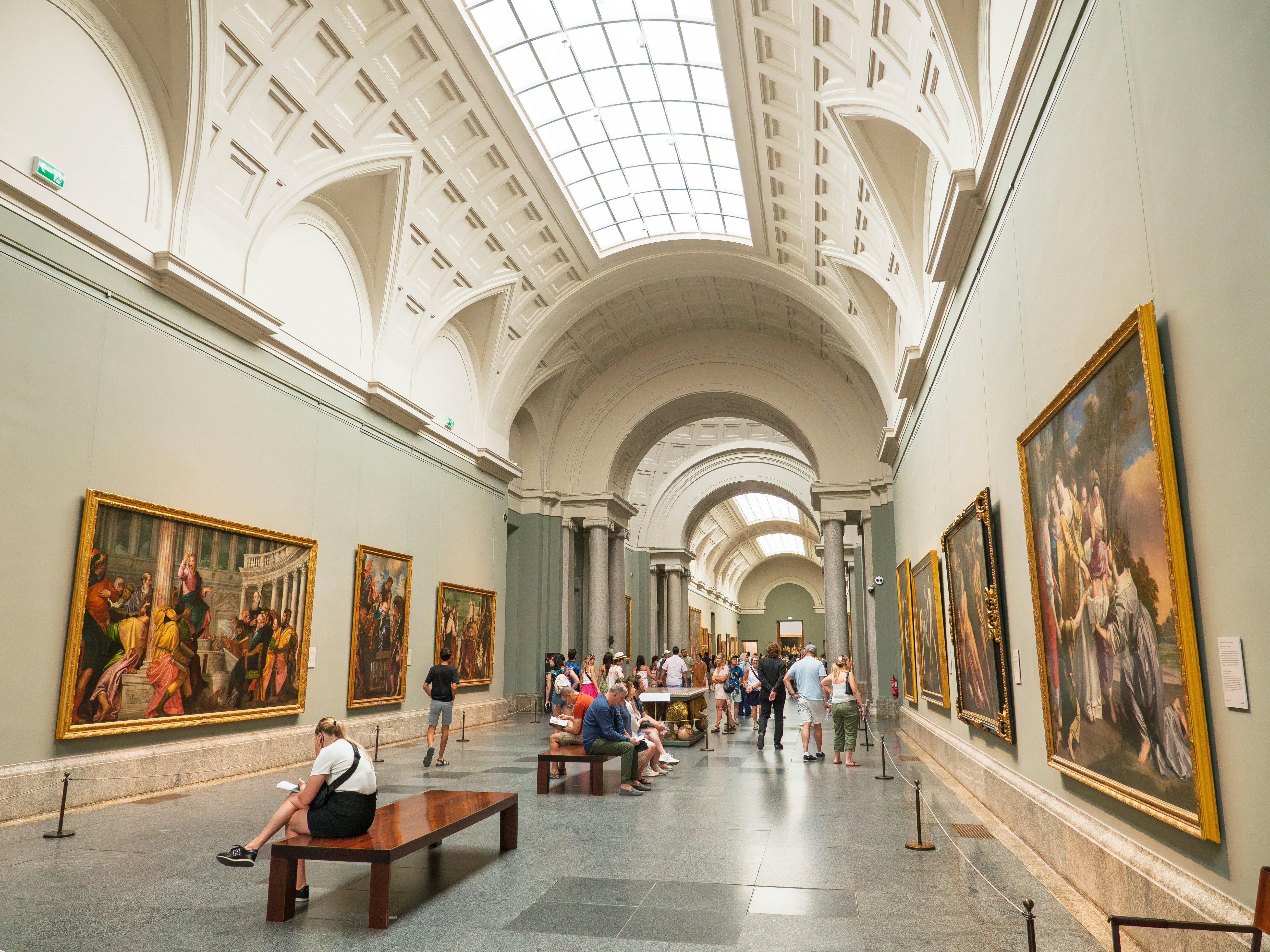
2. See the city’s top art galleries
The three galleries that make up Madrid’s golden triangle of art are all open for free at certain times of the day or days of the week. The most popular and most difficult to score is the Museo del Prado, which gives out a limited number of free tickets from 2 hours before closing, which is 8pm from Monday to Saturday and 7pm on Sunday. Expect to queue for quite some time to snag one of these. Closing time is 8pm.
The lines are also long but not quite as bad over at the Museo Reina Sofia. The home of Picasso’s famous masterpiece Guernica also have free entry 2 hours before closing: in this case, the gallery closes later, at 9pm Monday to Saturday and 2:30pm on Sunday.
Don’t feel like waiting in a long queue? The Thyssen-Bornemisza is free between 12–4pm every Monday and – added bonus – the collection covers both classical and modern art, so you can tick two boxes off in one go.
Planning tip: Get in the queue just ahead of free times, as these tickets are extremely popular.
3. Nibble some free tapas
Traditionally, a tapa is a small plate of food provided free with your drink. The quality of tapas differs depending on where you are in Spain. In Madrid, most bars offer a basic tapas of potato chips or nuts, and some go beyond that. To get more variety, visit Casa Ciriaco, El Madroño or Portomarín, all excellent bars in the city centre that offer top-notch tapas that might include slices of cheese, cold meats or tiny sausages. Don’t be afraid to ask for a swap if you’re a vegetarian.
Planning tip: Bars in outlying districts tend to be more generous. Visit Cervantes’ birthplace, Alcalá de Henares, for the best free tapas in the wider area of Madrid Comunidad.
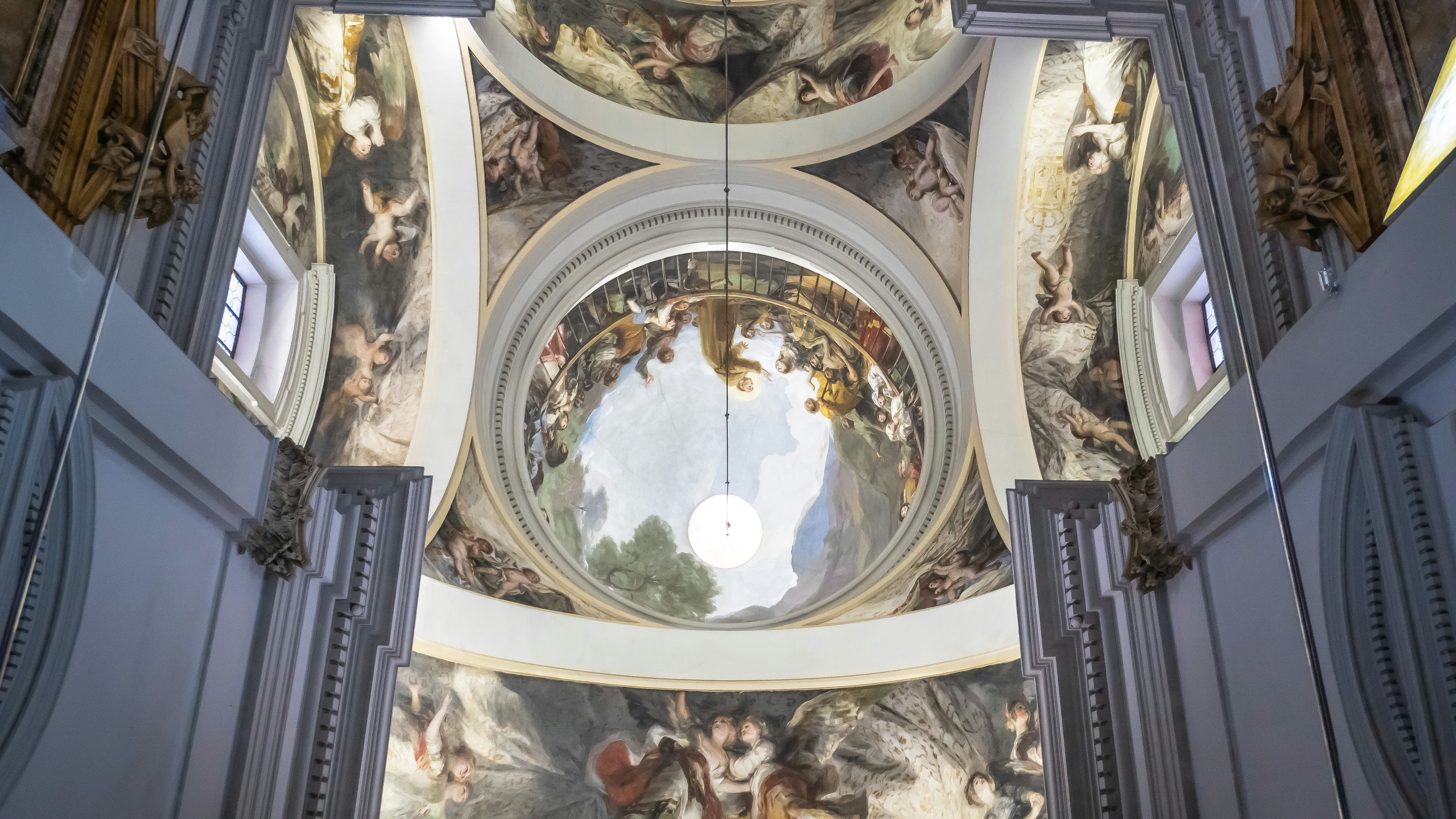
4. Pay your respects to Goya at Ermita de San Antonio de la Florida
Goya is present in body and soul at this small hermitage close to the Manzanares River, where his frescos grace the dome and what remains of his remains lie at the altar. Painted during happier times before he lost his head literally and posthumously in self-imposed exile in Bordeaux, the tableau was commissioned by Carlos IV in 1798 to pay homage to St Anthony of Padua. Goya decided to add local characters to the scene, which has a fresh, contemporary feel.
Planning tip: Don’t mistake the hermitage for the replica next door, which was built so that mass could be held without art lovers trooping through.
5. Cool down at the Playa de Madrid Río
Madrid’s “beach” is a popular spot with locals during the summer months. Right on the banks of the Manzanares River, the Playa de Madrid Río is a series of fountains located in the middle of a landscaped park, where parents bring their children to cool off. For more family fun, don’t miss the slides running down from the Arganzuela Bridge. Pack a picnic and use the benches under a tree-lined avenue nearby to round off your trip.
Planning tip: Food and drinks are a little overpriced at the cafe right by the fountains. Instead, head to the main road for coffees and top-notch ice cream at Di Angelo Gelateria.
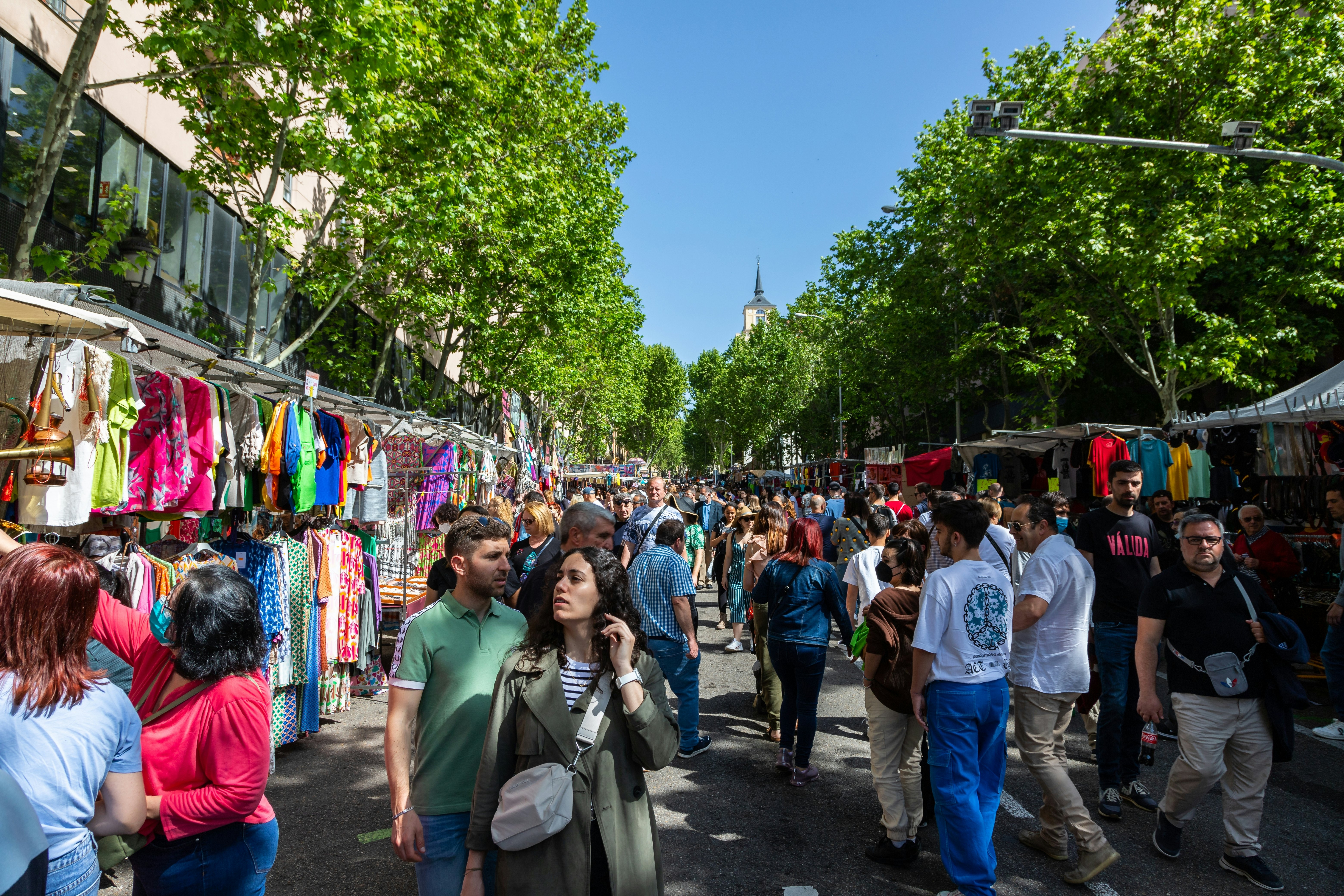
6. People watch at the Rastro
Madrid’s biggest and oldest open-air market has shut down just twice in recent memory: once during the Civil War and again during the pandemic. Now the Rastro is back and as lively as ever, with traders spilling down the streets from Plaza de Cascorro every Sunday. Just about everything imaginable is on sale here, from antique furniture to old photos to vintage comics to modern fashions. People watching is part of the experience, and the best seats for Madrid’s lively street theatre are in front of local institutions like Bar Santurce. But you don’t need to spend any money to indulge in this visual feast; simply wander around and drink in the sights and sounds until you’ve had your fill.
Planning tip: Keep an eye on your belongings as pickpockets are known to work the crowds at the Rastro.
7. Go on a free tour of Lope de Vega's house
On Calle de Cervantes in the heart of Madrid’s literary district is Casa Museo Lope de Vega. A free tour of the former home of Spain’s most famous playwright gives visitors an insight into 17th-century Madrid as well as a peek inside the private life of one of the era’s most sensational characters – the Spanish bard was famed for his romantic exploits.
Planning tip: Tours are in English, but you must book in advance via the website. Otherwise, you can only gain access to Lope’s pretty garden and a small exhibition space out back.
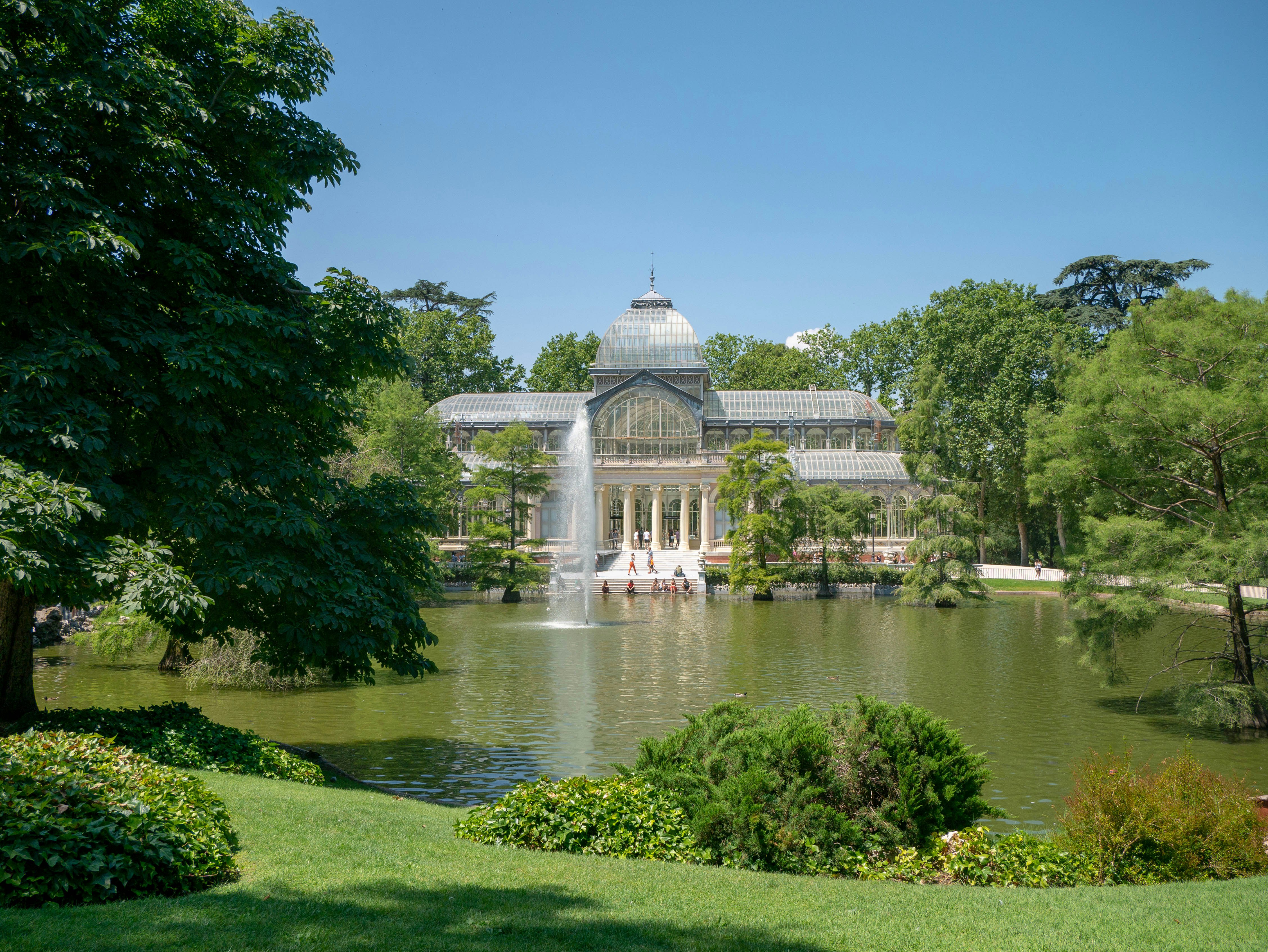
8. See peacocks and puppets in Retiro
Many people miss Parque del Buen Retiro's Jardines de Cecilio Rodríguez, which lie at the eastern side, right by what remains of an old zoo. These pretty walled gardens are home to a group of peacocks that can be admired year-round. On the busier northwestern side of the park, close to Madrid’s historic gate, Puerta de Alcalá, you can catch a free puppet show at a small amphitheatre. While performances are in Spanish, they’re visually engaging enough to hold the attention of small children. Check the website for performance times. This corner of the park is also home to Casa de Vacas, a cultural center with free exhibitions as well as a bandstand often used for free outdoor concerts. If that isn’t enough, at the ornamental lake you’ll see plenty of buskers.
Planning tip: There aren’t many supermarkets near Retiro Park, so buy food in advance if you’re making a day of it with a picnic.
9. Enjoy stunning sunsets at Templo de Debod
Madrid’s best outdoor show is arguably the sunset seen from Templo de Debod. The Egyptian temple is in Cuartel de la Montaña Park, a spot with amazing views of Madrid’s Palacio Real and Casa de Campo park. Particularly stunning come sunset, there’s a festive atmosphere here as crowds gather to watch the scenery turn a pretty pink.
Planning tip: Come early and take a peek inside the temple itself, which is as gloriously free as the views. Taken apart stone by stone and reconstructed in the park, the temple was a gift to Spain from the Egyptian government.
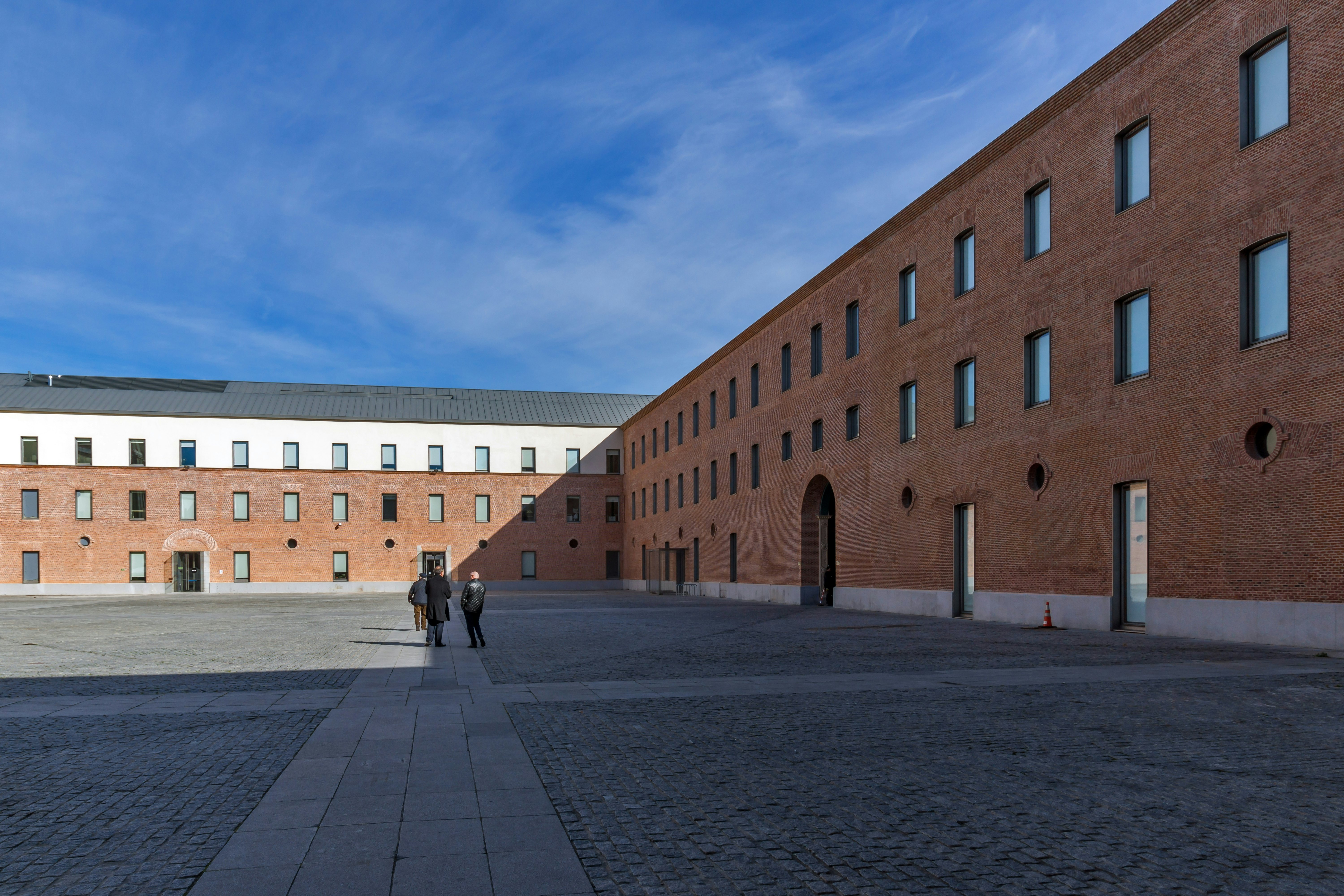
10. Take in a free exhibition at Conde Duque
One of the city’s most splendid gates opens out onto what was once a huge cavalry barracks and is now a cultural centre with a library, concert halls and exhibition spaces. All exhibitions are free, and this includes access to a contemporary art gallery on the second floor. Check the program before visiting.
Planning tip: Photography fans might also want to visit Galería Blanca Berlín, a small gallery just opposite Conde Duque.






